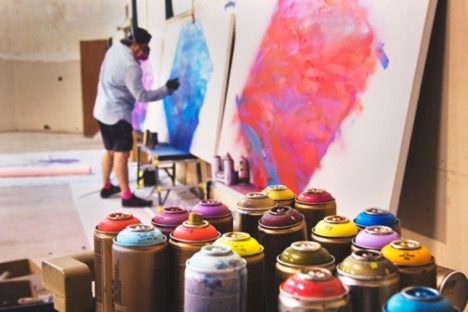As a creator, it’s relatively easy to get caught up in the details and lose track of the broader picture. It’s critical to realize that your career is a business, and there are steps you can take to secure your success.
In today’s environment, having a solid internet presence is more vital than ever. Social media and your website are critical for promoting your work, communicating with followers, and expanding your audience. If you want to see results, you must be persistent and put in the effort. This entails networking, marketing your work, and developing new content regularly.
Highlighting Skills
An artist’s talents can be highlighted in various approaches to advance their profession. Some creatives might decide to construct a portfolio of their work. In contrast, others may want to build a website or blog to broadcast their work to a broader audience.
Artists can also engage in displays and festivals and collaborate with other artists to produce creative material. By exploiting these prospects, artists can obtain visibility for their work, cultivate professional relationships, and develop their abilities.
A portfolio is an excellent tool for artists to display their work and abilities. Portfolios can be developed digitally or in hard copy and can be tailored to highlight the artist’s best qualities. For example, an artist might opt to display a selection of their work.
A well-written CV and cover letter can help an artist stand out from the crowd and boost their chances of getting a job or opportunity. CVs and cover letters can also be incredibly beneficial for artists looking for work or alternatives to display their work. Following an Artist CV Guide can help an up-and-coming artist with just that.
Websites and blogs can be employed to write about just the artist’s process, offer updates, and create essays about the creative industry. Artists can establish a community of supporters and followers that can provide assistance and feedback by promoting their work and opinions online.
Networking
Artists can generate chances to promote themselves and their craft by networking with certain other artists, art dealers, patrons, and exhibits. Furthermore, networking can engage artists with other professional people who can offer essential resources and guidance. Artists, for instance, can interact with art lawyers, CPAs, and other business people who can assist them in navigating the commercial side of the art world.
Among the most fundamental ways networking may assist artists is by providing chances for exposure and sales. Engaging with other artists and art professionals allows artists to hear about upcoming exhibitions and performances in which they may be interested.
Social Media Management
In various ways, social media management can aid artists in growing careers. First, social media can cultivate a following and generate interest in an artist or their work. This can be accomplished by posting unique content and connecting with followers and admirers. Social media can also help young fans support artists without having to bear expenses.
Furthermore, social media can communicate with other industry experts such as promoters, booking agencies, and publishers. Finally, social media can be utilized to keep up with current industry trends and news as well as to promote one’s own ideas and work with a larger audience.
Social media, when used correctly, can be a tremendous tool for artists trying to further their professions. Artists can utilize social media to advance their careers by developing a robust online presence, engaging with other professionals, and staying up to date on industry developments.
Generating Press
An artist can increase the buzz about their work and attract a larger audience by obtaining newspaper publicity. Furthermore, the press can assist an artist in establishing a reputation and credibility in their industry.
An artist can attract the press in a variety of ways. One approach is to submit their creations to magazines and sites that showcase budding artists’ work. This can be an excellent way to gain visibility and reach a new audience.
Participating in art fairs and other events featuring contemporary artists’ work is another strategy to advance an artist’s career. This can assist an artist in reaching out to new audiences and selling their work.
Managing Finances
There isn’t a one-size-fits-all solution to this issue because the ideal technique for an artist to govern their income depends on their specific circumstances. However, there are some broad guidelines that an artist can practice assisting them in making the best use of their money and advancing their profession.
Staying on top of one’s revenue and expenses is one of the most critical things an artist can do. This will enable them to comprehend where their funds are being spent and identify places where they could save money. Setting money aside each month for savings and investing is also critical.
Concerning spending money, it is critical to consider what can enhance an artist’s profession and what is merely an indulgence. For example, investing in high-quality art equipment or attending classes to develop one’s talents is likely to be more helpful than purchasing brand clothes or taking expensive holidays.
It is also critical to understand the tax implications of various financial actions. In many jurisdictions, for example, artists can claim tax benefits for business expenses relevant to their jobs, such as the expense of instruments and equipment. However, it is critical to consult with an accountant or tax advisor to guarantee that all deductions are legally claimed and that no amount is outstanding.
Final Words
We’ve discussed the five things you should know as an artist to advance your career. We attempted to address difficulties that most artists are unaware of or fail to address. We cannot teach you how to produce art, but we can teach you how to present it to the rest of the world to reach a larger audience. That is exactly what this article aims to do.


